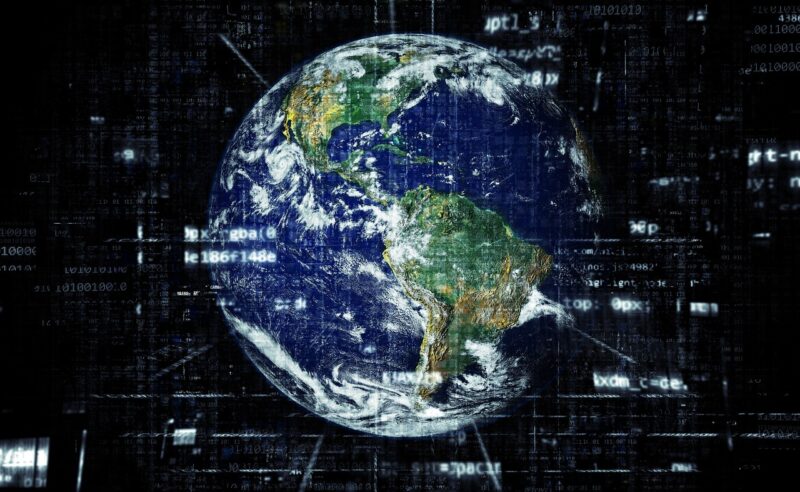What the Future Holds for Relationships: Love, Loneliness, and Connection in 2030
November 17, 2024

As we look forward to the year 2030, our understanding of relationships, love, and connection is evolving rapidly due to advancements in technology, changing social dynamics, and a heightened awareness of mental health and well-being. The future is a complex tapestry woven with threads of new possibilities and challenges. In this article, we will explore the pivotal shifts in relationships as we approach 2030, delving into how technology, societal changes, and personal awareness shape human connectivity.
1. The Impact of Technology on Romantic Relationships
Technology has always influenced the way we connect, but the next decade promises unprecedented changes. Dating apps, social media, and virtual reality (VR) are already reshaping romantic engagements. As we move closer to 2030, we can expect even more profound impacts:
- AI and Matchmaking: Artificial intelligence is likely to become a standard tool in dating apps, enhancing compatibility algorithms and offering personalized suggestions based on users’ preferences and behaviors. These features could lead to deeper and more nuanced connections that go beyond initial attraction.
- Virtual Reality Dates: VR technology may offer couples unique dating experiences, allowing them to transport themselves to romantic locations around the globe from the comfort of their living rooms. This innovation could dramatically change how long-distance relationships evolve and flourish.
- Augmented Reality Planning: Imagine using augmented reality to plan a date or a wedding! Couples might use AR technologies to visualize venues and themes in real-time, enhancing the planning experience and simplifying decision-making processes.
With these advancements, relationships could become more exciting and less limited by geographic barriers. However, it also raises questions about authenticity and emotional depth. Can love truly flourish in a digital realm, or do we risk losing the human touch?
2. Evolving Definitions of Love and Commitment
As society becomes more inclusive and aware, the definitions of love and commitment are shifting:
- Polyamory and Open Relationships: The traditional monogamous relationship may not be the only acceptable model in 2030. More individuals are embracing polyamory and open relationships, leading to diverse family structures and dynamics, which could reshape societal norms around love and commitment.
- Emotional Intelligence: With greater focus on mental health, emotional intelligence will likely be more prevalent in relationship dynamics. Couples may prioritize communication, problem-solving skills, and emotional support, fostering healthier and more satisfying partnerships.
- Redefining Loneliness: As more people choose singlehood or alternative relationship structures, loneliness and connection will continue to be critical themes. A shift towards understanding and addressing loneliness as a societal challenge may encourage communities to foster deeper connections beyond traditional romantic partnerships.
These evolving definitions will help individuals create fulfilling partnerships that align with their values, ultimately reducing the feelings of isolation and promoting a deeper understanding of connection.
3. Mental Health and Relationships in 2030
Mental health awareness is paramount in shaping our future relationships. In 2030, we can expect a more profound emphasis on mental health within romantic contexts:
- Therapy and Counseling: Couples therapy and individual counseling may become standard practices even for those not in crisis. Emotional check-ins and therapy sessions might be as commonplace as date nights, emphasizing preventative care in relationships.
- Mental Health Apps: With the rise of mental health awareness, apps that facilitate emotional well-being and accessibility to resources will likely become integrated into everyday relationship maintenance. Couples will leverage these tools to communicate better and strengthen their bond.
- Breaking the Stigma: Discussions around mental health will likely permeate social settings, creating a culture that values vulnerability and authenticity within relationships. This will foster deeper connections as partners openly discuss their feelings and struggles.
By prioritizing mental health, couples will be better equipped to navigate the complexities of love, loneliness, and connection, ultimately leading to richer and more enduring relationships.
4. Community and Connection Beyond Romance
In 2030, the notion of community will likely redefine what connection looks like, going beyond romantic partnerships:
- Friendship Circles: Non-romantic connections and friendships will be emphasized more than ever. Communities may form based on shared interests, experiences, or life stages, enhancing a sense of belonging and reducing loneliness among individuals.
- Intentional Communities: The rise of co-living spaces and intentional communities could facilitate deeper relationships among individuals who prioritize shared values and lifestyles. These setups may foster a greater sense of equity, companionship, and connection among inhabitants.
- Global Connectivity: With technology eliminating geographical barriers, people will forge relationships across cultures and countries, leading to a richer understanding of love and connection as a global phenomenon.
In a world that appreciates the diversity of relationships, community and connection beyond romantic love will help alleviate feelings of loneliness while enriching the human experience.
5. Conclusion: Embracing the Future of Relationships
Relationships in 2030 are expected to reflect a blend of technology, emotional intelligence, and evolving societal norms. The future of love will embrace diversity and inclusivity, creating enriching partnerships that prioritize mental health and genuine connection. While loneliness may be a persistent challenge, the emphasis on community, friendship, and alternative relationship structures will play a vital role in fostering meaningful connections.
What lies ahead is a landscape of relationships that are grounded in understanding, compassion, and support—an opportunity for individuals to redefine love and connection in ways that resonate with their true selves. As we journey into the future, let us embrace the changes with open hearts and minds, cultivating rich interpersonal connections that enhance our well-being and joy.
With an ever-evolving social fabric, our relationships will serve as both refuge and source of growth, leading us toward an exciting future in human connection.






